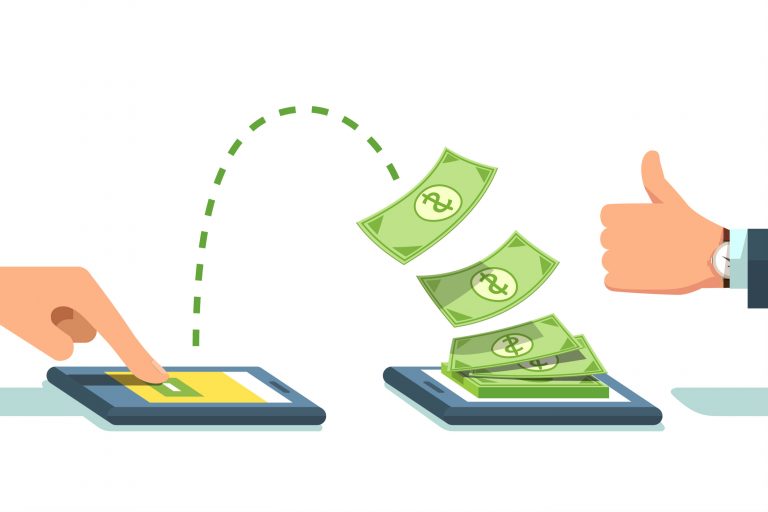Understanding how banks make money is necessary for anyone who wants to make informed decisions about their own finances. Knowing where banks earn their profits can help you avoid unnecessary fees and charges. You can also use this knowledge to make better use of the financial products and services they offer.

There are many ways for banks to earn money, including interest income, fees and charges, and investment income. We’ll explain how the banking system works, and how to make the most of your money.
Commercial Banking vs. Investment Banking
When it comes to banking, there are two main types: commercial banking and investment banking.
Commercial banks, also known as retail banks, offer familiar services such as checking accounts, loans, mortgages, and more to individual customers and small businesses. Their profits stem from the interest earned on lending.
Contrarily, investment banks handle complex financial transactions. These include securities issuance and sales, underwriting, financial advice to corporations and governments, proprietary trading, and financial instrument market-making.
Both banking types play a significant role in the economy and cater to diverse needs. Understanding their differences can aid in informed financial decision-making.
How Banks Make a Profit
Banks are financial institutions that play an essential role in our economy by providing a safe place to store money and access credit. They make money by charging interest on loans, investing in assets, and charging fees for certain services.
Banks are financial hubs that play an important role in the economy by providing a safe haven for funds and enabling access to credit. They generate revenue through a combination of charging interest on loans, investing in assets, and imposing fees for various services.
Interest: The Heart of Banking
Interest income is the cornerstone of a bank’s operations, earned by charging interest on loans and paying interest on deposits. It is a significant source of revenue for banks.
Banks make money by charging borrowers a higher rate of interest than they offer depositors. This is because borrowers are using the bank’s funds for purchases or investments, while depositors are entrusting their money to the bank for safekeeping.
Two Types of Interest Rates
Interest rates come in two forms: fixed and variable. Fixed interest rates are set at a specific percentage and remain unchanged throughout the loan’s life.
On the other hand, variable interest rates can fluctuate based on market conditions. Understanding these two types of interest rates can help in making informed borrowing decisions.
External Factors Influencing Interest Rates
External forces like the Federal Reserve’s decisions also impact interest rates and hence banks’ interest income. For instance, a Federal Reserve’s reduction in interest rates can make borrowing cheaper for banks. This can result in banks offering lower interest rates on loans and deposits, boosting the economy by encouraging borrowing and spending.
Fees Charged by Banks
Banks generate revenue by imposing fees on certain services offered. Some common fees are:
- Account maintenance fees: Monthly or quarterly fees for account upkeep.
- ATM fees: Fees for using ATMs not owned by the bank.
- Overdraft fees: Penalties for spending beyond account balance.
- Minimum balance fees: Fees for falling below a certain minimum balance in checking or savings accounts.
- Wire transfer fees: Fees for sending/receiving money through wire transfer.
- Foreign transaction fees: Fees for using debit/credit card abroad.
- Returned deposit fees: Penalties for returned, unpaid deposit checks.
- Stop payment fees: Fees for stopping a check or recurring payment.
- Paper statement fees: Fees for paper statement requests.
- Closing account fees: Fees for closing an account prematurely.
Fees may vary based on bank and account type. Although they may seem small individually, they can accumulate and significantly impact finances. Be mindful of fees imposed by your bank and compare options for cost-effectiveness.
Alternative Options for Avoiding Fees
One way to avoid these fees is by using online banks or credit unions, which usually have lower fees than traditional banks. Some of them don’t charge any fees at all. Additionally, you should compare fees and services between different banks to find the one that best suits your needs.
Investment Income
Banks also make money through investment income, which is the money they earn from investing their assets. They invest their assets in various ways, such as buying stocks, bonds, and real estate. These investments can generate income for the bank, as well as provide a way for the bank to grow its assets over time.
As with any investment, there is a level of risk associated with the investments banks make. The returns on these investments can vary depending on the performance of the underlying assets.
How to Avoid Bank Fees
There are several ways to avoid bank fees:
- Compare fees and services between different banks to find the one that best suits your needs.
- Use online banks or credit unions, which often have lower fees or no fees at all.
- Keep a minimum balance in your checking or savings account, to avoid minimum balance fees.
- Use your bank’s ATMs to avoid ATM fees.
- Monitor your checking account regularly to avoid overdraft fees.
- Opt for electronic statements instead of paper statements.
- Use a debit or credit card that doesn’t charge foreign transaction fees if you travel frequently.
- Consider using alternative forms of payment such as e-transfer or mobile payments to avoid wire transfer fees.
- If you’re planning to close your account, make sure to check for any closing account fees and plan accordingly.
- If you have a check that you know will be returned, consider stopping the payment before it happens to avoid returned deposit fees.



